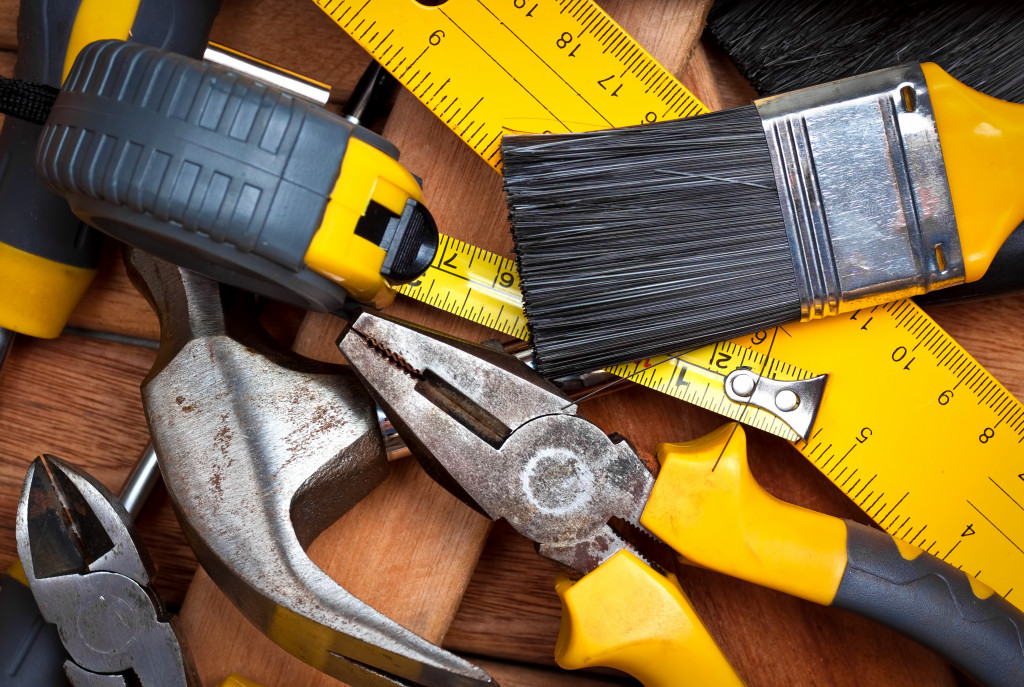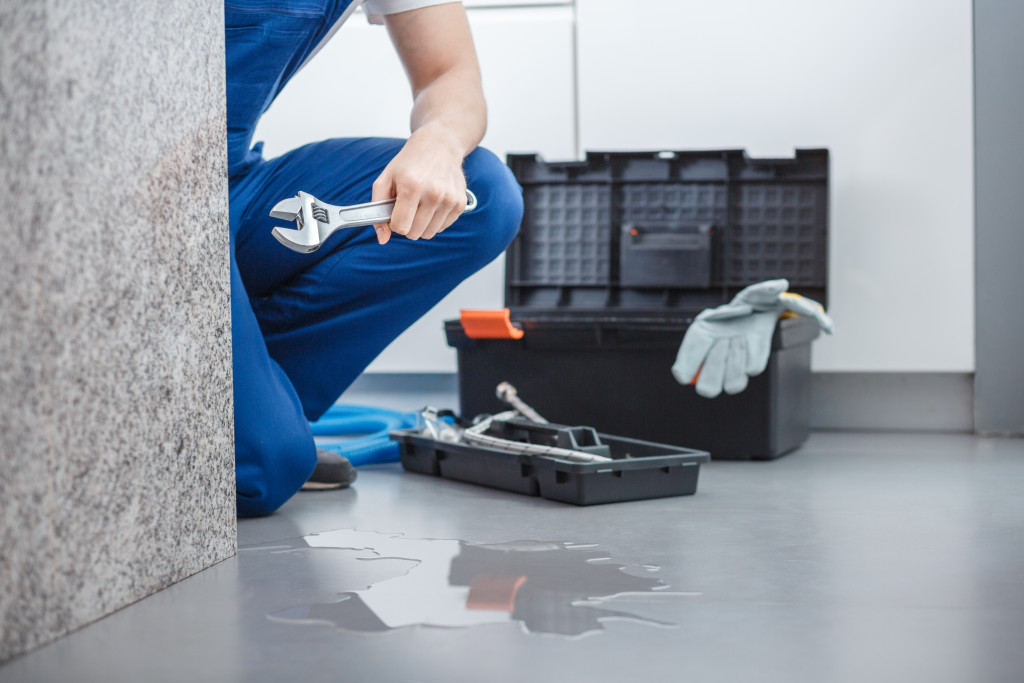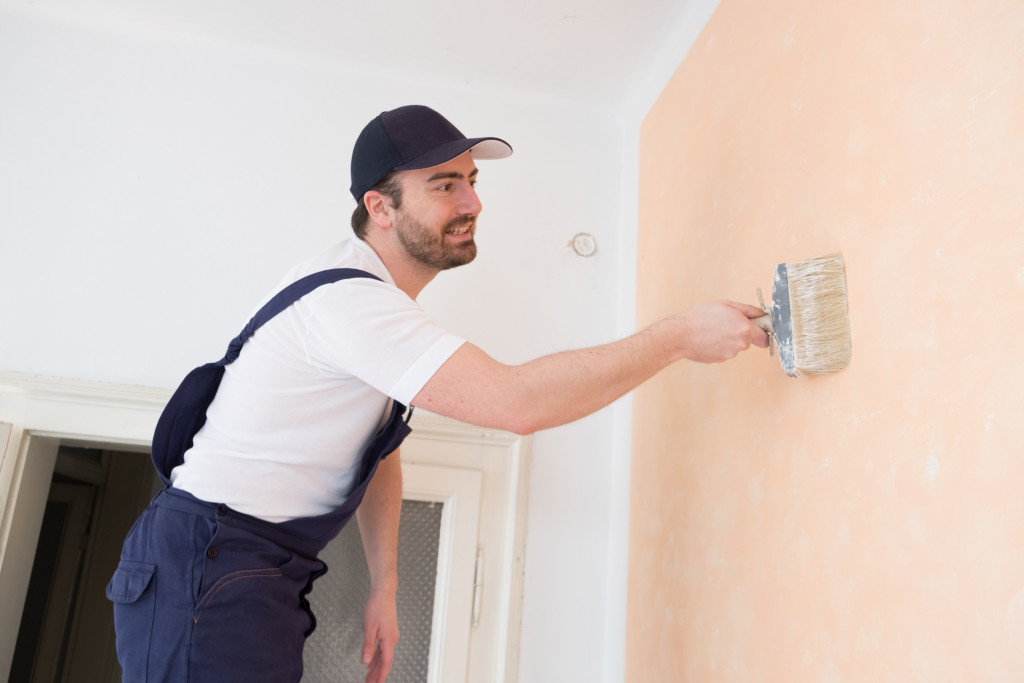- Learn the basics of home repair and maintenance to ensure safe and successful DIY projects.
- Assess risks and hazards before starting a project to prevent accidents and damage.
- Understand which materials are best suited for particular types of projects.
- Use tools correctly to avoid injury and maximize efficiency.
- Research techniques, best practices, and use quality products from reputable suppliers for optimum success.
Learning DIY tactics can be an invaluable asset for homeowners. After all, taking care of small and large-scale repairs on your own can save you time, money, and stress. With the internet making it easier to find tutorials and instructions on everything from basic plumbing repairs to full-scale home renovations, there’s never been a better time to start tackling some of these projects yourself.
In addition to the financial savings that come with taking care of repairs yourself, there are other benefits. For example, learning these skills can give you greater peace of mind knowing that you can fix it quickly and effectively if something goes wrong in your home. It can also provide a great sense of pride and satisfaction when you complete a project successfully or see the results of hard work pay off as a functional and beautiful living space.
However, there will be a few challenges that you’ll need to consider before getting started. You might not know the most effective tools, the correct way of doing something, or even if a DIY project is safe. Here are a few tips to make sure that you’re well-prepared for a DIY project:
Learn the Basic Essentials

Do-it-yourself projects can be advantageous. However, it’s important to learn the basics first. Knowing the essential skills and techniques will help ensure you do the job correctly and safely. Here are a few reasons why anyone considering a DIY project should take time to learn home repair fundamentals.
Assess Risks and Hazards
One of the most significant advantages of learning to do repairs is identifying potential hazards before they become a problem. Knowing how to assess risks can not only prevent injury from happening but also save time and money in the long run. Familiarizing yourself with basic safety protocols for using tools such as ladders and power drills is critical to avoiding accidents during any repair or construction work.
Understand Different Materials
When taking on a DIY project, it’s critical to understand what materials are best suited for a particular type of job. For example, some materials are best for outdoor projects, while others are better suited for indoor ones. Considering factors such as climate, cost, durability, installation difficulty, weight capacity, etc., will help you choose the most appropriate material for your project. Knowledge about different types of materials can also give you an idea of how much your project may cost, which will help you budget accordingly.
Use Tools Properly
Misusing tools or without proper training can cause severe damage or injury. Learning adequate technique goes hand in hand with understanding safe practices and can make all the difference when starting a DIY project. It’s essential to familiarize yourself with instructions for specific tools, such as saws and hammers, so you know how to use them safely and efficiently without damaging your workspace or endangering yourself or others nearby.
Research Techniques & Best Practices
Just because you’ve read instructions online doesn’t mean every step should be taken literally; practice makes perfect! Researching different techniques is essential if you want to make sure that your repairs look professional when finished. Exploring topics like painting walls or tiling floors can provide insight into new methods and tricks that could save you time or money—especially if this will be a recurring task in your home maintenance routine!
Understand Efficiency
DIY home maintenance projects require efficiency to ensure the job is done correctly and promptly. Efficiency also helps DIY homeowners save time and money and reduce the incidence of mistakes or accidents while completing their projects. Knowing how to use tools properly, assess risks and hazards accurately, learn essential skills and techniques, understand different materials better, and research best practices are all ways for DIYers to become more efficient in their tasks.
One area where DIY homeowners might encounter efficiency issues is welding. It is an intricate process that requires advanced knowledge and practice to ensure it is done correctly and without error. To help with welding projects, DIYers can purchase high-quality weld cleaning solutions from reputable suppliers to make the process more efficient and successful. With quality products, they can rest assured knowing their project will turn out strictly as intended.
Seek Help When Needed

As prideful as it might be to be a DIYer, home maintenance projects can be complex and require your time and energy. It is common to encounter difficulties when taking on a project you’re unfamiliar with or need a second opinion. Don’t hesitate to ask for help—doing so will save you time, energy, and money in the long run!
Some complicated home projects include plumbing repairs, electrical wiring, and roofing. If you’re not confident in your abilities or lack the tools to complete a task, it is best to leave it to experienced and knowledgeable professionals in these areas.
Final Thoughts
Learning how to do DIY maintenance and repair work can be extremely rewarding. With some practice, research, and safety knowledge, you can save time and money while gaining confidence in your abilities. Ultimately, preparing for any project is essential—don’t hesitate to ask for help when needed and use quality products from reputable suppliers to get the job done right!
